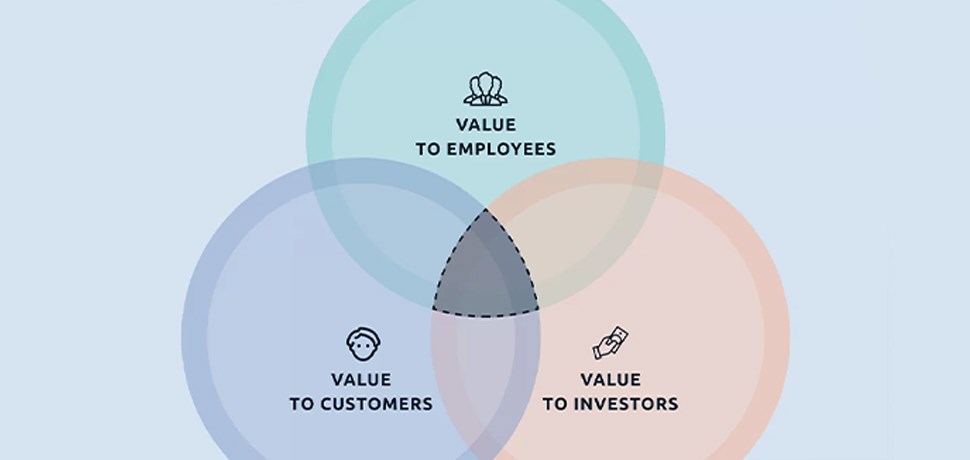
“I want to talk to you human to human,” says host Mark Sham from the stage at the latest Small Business Showcase dinner at The Tryst in Sandton. He’s wearing shorts and it’s been a long, sweaty day for him, which began without water for the umpteenth morning in a row. (After a week spent largely without power.)
But Mark is his usual charismatic self, committed to teaching his rapt audience of small business owners how to create value in a new, weird and unsettling world.
“I’m not going to tell you anything new,” he says, “but I’ll just remind you.” And what’s the takeaway? It’s this: Be generous with what you give to others. Give, give, give and then subtly ask. Or, as Mark puts it, “Jab, jab, jab…right hook!”
Defining value creation
Value creation, at its core, requires that you make products and provide services and solutions that customers find consistently useful and that they build a bond of loyalty with. But it’s only possible when you focus on delivering what your target market cares about most; on meeting their needs with not only speed, but also precision.
Zig Ziglar, American author, salesman and motivational speaker said it in the 1960s and 1970s, but it’s no less true today: “You can have everything in life you want, if you will just help other people get what they want.” More recently (literally, yesterday), sales guru Pat Flynn said, “When you can understand human nature, you can understand how to better serve your audience. Never upsell. Upserve.”
Here's how to upserve
Start by remembering that the value of your product or service is not the same as the price. The price is what your customers pay (give), while the value is what they receive (get). How can this go wrong? If you think short-term, not long-term, like this:
“Hey, I helped you. Buy from me.”
No thanks. Consumers have a plethora of choice available to us and we buy based on emotion. So, if you’re going to make your consumers love you, you need to figure out what’s valuable to them and then efficiently create that value.
You also need to realise that, no matter what you actually do for a living, you’re in the business of marketing and you’re in the business of sales. As a result, your ultimate success depends on your ability to absorb pain and come back for more, like a good salesperson who knows it takes seven ‘Nos’ to close a sale.
“People want the thing, but they don’t want to do what’s necessary to get the thing. Because that’s hard work. It’s uncomfortable. People fool themselves that success is reserved for the geniuses. Success is reserved, yes, but it’s for those who keep showing up, stuffing up and trying again,” says Mark.
What’s the sweet spot? It’s the overlap between providing value to your employees, value to your investors, and value to your customers, even when things are tough.
Practise your way to value creation
The post-pandemic world has made easier than ever to start a business. Register a domain. Get a logo designed for $5. Use Canva to work up a quickie brochure. But it’s harder than ever to actually run a business. The market isn’t interested in your features and promises. They’re overloaded – having to filter constantly and too much – and so they need explicit benefits and advantages; value and generosity.
This gives context for Mark’s over-arching philosophy:
If you give value to someone else first, you have leverage.
Here’s how it works: You should technically always be owed, but rarely if ever call in the favours and don’t keep score in the short term. Think of your head, says Mark, as “the swimming pool – and your heart as the ocean”.
Actually, Mark’s talk is a bit like the ocean, in that it comes in waves and never ends. Well, it flows for almost two hours – without so much as a cough, a fidget or a cellphone check from anyone in the audience. The crowd is smitten. And they’re newly motivated to take real action, based on comments during the Q&A.
Bottom line? If your goal as a small business owner is to make an amazing impression that yields amazing and sustainable success, you must: